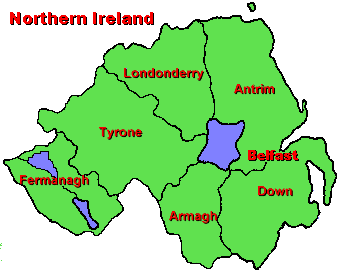Yesterday, the Guardian published a story on iPads being useful as cookbooks and this makes me hark back to a previous blog post:
Never has this concept been so adequately realised than with the iPad. Meeting with Wallace High School yesterday illustrated to me not only how far we had come but also the differences in the thought process between someone who thinks they know what a school needs and someone who has experienced what a school needs. The team at Wallace are not just thinking about what is needed, they’re implementing it while the rest of us dally. I was struck by their attitude, a confident step forward with the knowledge they are doing the right thing for their charges.
I wonder what the response will be from our government. They’ve recently awarded the next generation EN(NI) [Education Network for Northern Ireland] contract to the company who had previously managed the C2K network which has drawn ire from teachers, pupils and parents for over a decade. My own personal experience with the C2K network (and managing technicians), in assisting the delivery of C2K-approved projects and assisting specialist schools with their own infrastructure was frustrating at best and deliberately obstructive at worst. We would come into a Specialist school to troubleshoot a login and network issue and find that a technician has unplugged all of the specialist computers at the switch and charged the school for the privilege. We would end up re-plugging them and not once did we charge the school for the visit because, ultimately, it wasn’t their fault. The contract was flawed, obstructive and stacked the odds heavily against the school, the pupil and against learning.
The new ICT investment will bring schools the benefits of cloud computing while ensuring students and teachers are secure online. The new Education Cloud provides the ability to scale computing resources to meet the needs of schools both today and in the future. Schools will access a range of applications and educational resources through Northgate’s My-School learning portal.
…
The new infrastructure will also offer greater device connectivity – allowing teachers and students to gain access to the network and resources securely via personal devices such as smart phones, IPads, tablet PCs and laptops. Broadband provision will be improved with schools being provided with up to 200Mb. This contract will see Northgate take responsibility for the Wide Area Network, Local Area Network and Telecoms.
The only issue I see here is one of control. This press release does not seem to include the concept of BYOD but rather just the issue of diversity of devices. BYOD is, to my mind, a deliberate relaxing of control in favour of access. Enabling rather than regulating. The spirit of BYOD is epitomised by Ayn Rand:
The question isn’t who is going to let me; it’s who is going to stop me.
If you do not open access, people will find other ways. And if you require me to add some weird software to MY device to access your network, you’re an idiot. The tide has turned. Children are bringing devices into school that are more capable than the laptop and desktop PCs installed by the preferred supplier. And is the preferred supplier going to prevent future engaged learners from accessing resources as they have for the last decade?
Teachers will work around any blockages by not using the network. Most schools in Northern Ireland retained their “legacy” networks and were glad they did. And if draconian controls are placed on devices then, surprise surprise, teachers and pupils will avoid them. They will install their own access points, install their own wiring and switches, install their own broadband links and internet filters – utterly duplicating the infrastructure we, as taxpayers, have been paying for. We’ve seen it over the art decade, I don’t expect that to change.
I also spent part of last night listening to the #niedchat Twitter meeting. What struck me was not the suitability of the iPad but the main thrust was how would we standardise on such a device when there are such inequalities in our society. The topic of iBooks Author came up and it seemed that textbooks are not an issue because most teachers already deliver most of the content in the form of worksheets they have devised themselves.
So, in the face of all of this change, and the realisation that iPad is already the present of educational ICT resources, what does a school of the future look like?




